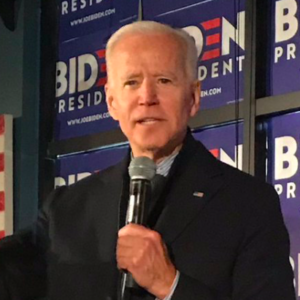President-elect Joe Biden has radical ideas to build up union membership in Pennsylvania and across the country, having endorsed policies that labor leaders have wanted for years. There is little evidence that Pennsylvania’s actual rank-and-file union members are excited by any of it.
Biden prides himself on being “Blue Collar Joe” from Scranton, but it was Donald Trump who won the support of more union households in the Keystone State, 51 to 49 percent, according to national exit polls.
That’s a small margin but remarkable for a Republican presidential candidate. Democrat John Kerry, for example, beat Republican George W. Bush by a whopping 62 to 37 percent among union households in Pennsylvania in 2004, and with a far less radical agenda than Biden’s.
It’s not as though Biden didn’t put his agenda out there for Pennsylvanians to hear. His first major campaign speech was in Pittsburgh. He talked about raising the federal minimum wage to $15, stopping companies from classifying low-wage workers as managers, and preventing union-busting.
Anybody who checked out Biden’s website would have seen his ambitions did not stop there.
He promised to “aggressively” pursue employers who violated labor laws or withheld worker overtime pay. He would create a “Cabinet level” group to “solely focus” on increasing union membership and strength. He would outright ban the “right to work” laws in 28 states (Pennsylvania is not one) that say employees must either join their workplace’s union or pay it a regular fee if they want to keep their job.
He would end the alleged misclassification of gig economy workers as contractors rather than regular employees who get overtime and unemployment.
This was more radical than Trump’s jobs agenda, which focused on pushing aggressive trade policies with economic rivals like China and allies like Canada and Mexico, expanding apprenticeship programs, and trying to balance public health safety needs of the Covid-19 crisis without shutting the economy down completely.
Yet Trump still chalked up a win among Pennsylvania union households.
Maybe Biden’s agenda just wasn’t that appealing to union workers because he focused on pleasing union bosses. After all, stripping right to work laws from other states is not going to make a significant difference for Pennsylvanians.
In fact, some Keystone State union members may want a version of the law themselves. Maybe they feel their union isn’t doing its job or they’re irked that they never had a say about whether they wanted one in the first place.
A higher minimum wage will help some people, but if your union’s any good at collective bargaining, your wage should already be well-above the minimum. A bigger help for everyone would be to have policies that raise wages overall.
Promising to end worker misclassification might help some people unless you’re a worker who enjoys the flexible schedule of a contractor? Most who drive for gig economy companies like Lyft and Uber do it as a short-term, when-I-need-the-cash thing.
Forcing companies to treat all workers as traditional employees might help the ones who drive around 40 hours a week; but the added costs of employee status for all drivers means companies won’t be able to justify keeping people who want to drive less.
That’s bad for both those drivers and riders, who include union folks. We’ve already seen the business model that Biden’s policies would create — they’re called taxi cab companies — and they lost ground to rideshare services for a reason.
Biden did have some good ideas, like getting rid of non-compete clauses in job contracts. Businesses should not be allowed to restrict a worker’s right to take a job after they are no longer in the business’ employ.
If Biden had had more ideas like that, ideas that empowered workers instead of union bosses, he might have won over more of those union households.
The good news for Biden is it’s not too late for him to become the blue-collar champion he imagines himself to be.

